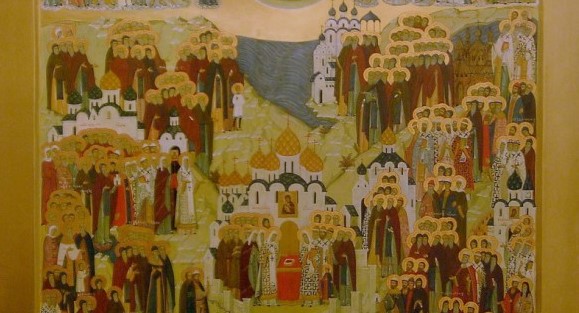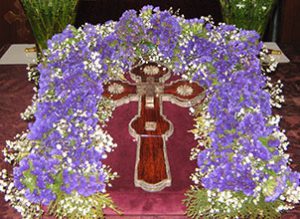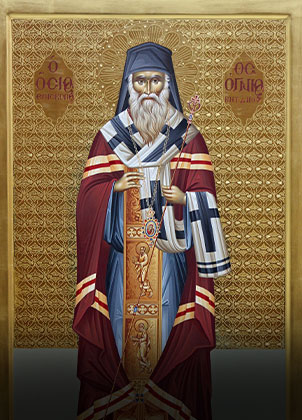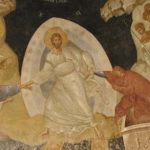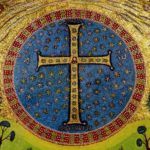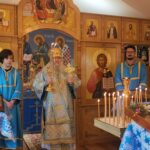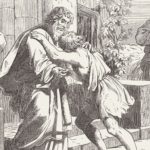Sunday of All Saints of Russia
In the name of the Father and of the Son and of the Holy Spirit.
Brothers and sisters, if we look at the icon of All Saints of Russia, we can see that most of them are monastics.

True, among the Russian saints there is a large assembly of pious princes, but even among them many ended their lives as monks. For example, St Alexander Nevsky, who was tonsured on his deathbed.
How can we explain that Russian princes, at the end of their life, wished to be tonsured? – Apparently, monastic life was the subject of their deep desire. It was impossible in their lifetime, because, as statesmen, they had to govern their country and wage wars, they had to have a family, to continue their lineage. But deep down they kept the ideal of monastic life. Therefore, feeling the approach of death, they took monastic vows, so that they might appear before the throne of God, not as princes, but in a humble monastic habit.
Was such a disposition typical only for the Russian princes? Of course not. Such was the disposition of the entire Russian society of that time, at least its best part. Not everyone could become a monk, but all bowed in reverence before the monastic ascetic life, they passed on stories about monks living in the desert and made pilgrimages to distant monasteries.
This attitude was preserved among the Russian people until recent times. In Russia before the revolution there were about 100,000 monks and nuns, and the vast majority of them were from the peasantry. Monasteries were the centres of spiritual enlightenment for the people, therefore the communists, having taken power, soon looted and closed the monasteries.
What is the monastic life and what is its purpose? The goal of monastic life is to fulfil, as truthfully as possible, the commandments of our Lord Jesus Christ, the commandments of the Gospel.
In order to have more freedom in this regard, monks take vows of poverty and chastity. Only in this they differ from other Christians.
The love of the Russian people for monasticism becomes clear: the love of monasticism is a love of Christ, a love of His divine teaching. Monastic life is a renunciation of the world. But all Christians equally must renounce the world. The Lord speaks of His disciples at the Last Supper: “They are not of the world, even as I am not of the world” (John 17.14).
A Christian may live in the world, but it is impossible to love the world, and to remain a Christian. St. John the Evangelist says in his epistle: “Do not love the world nor the things in the world. If anyone loves the world, the love of the Father is not in him.” Here, the ‘world’ means not God’s creation, amazing and beautiful, but an attachment to worldly interests and pleasures. St. John explains this: “For all that is in the world: the lust of the flesh, the lust of the eyes, and the pride of life, is not of the Father, but of this world.” (1 John 2.15).
Why does our heart cling to earth? Because it does not know Christ and therefore does not love Him. Only love for Christ supplants all other attachments from our heart. We should protect our heart from attachments to worldly things, passing and insignificant, and take all care to attain the future blessed life.
Amen

